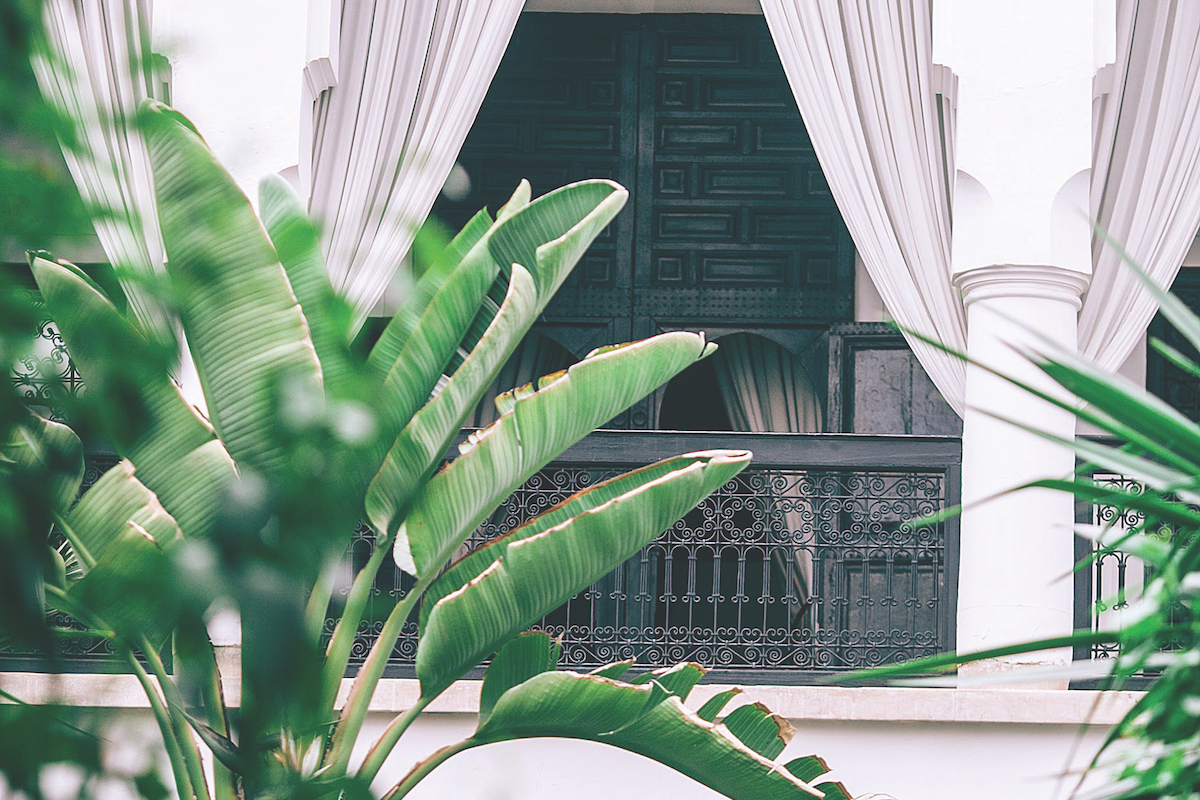A duck is on holiday when he meets a beautiful lady duck in a bar. Martinis are drunk and flirty chitchat exchanged until the duck charms her back to his hotel room. One thing leads to another, but then the duck realises he doesn’t have any condoms with him. He rings up the front desk to ask if they could bring some up. “Right away, sir,” says the hotel clerk. “We’ll stick them on your bill.”
“How dare you!” cries the duck. “What kind of pervert do you take me for?”
I inflict this lamentable joke only to demonstrate that hotels have become widely accepted as hotbeds of carnality and eye-popping sex.
Part of the erotic mystique is culturally hardwired. Right now, for example, a new exhibition called “The Myth” has just opened in Milan that documents the fashion photographer Juergen Teller’s purported attempt to have sex with his wife, Dovile Drizyte, in each of the 97 rooms at the Grand Hotel Villa Serbelloni in Italy. A similar location forms the setting for Anita Brookner’s 1984 Booker Prize-winning novel, “Hotel du Lac”, in which the protagonist takes refuge in a Swiss hotel on the shores of Lake Geneva, where she is propositioned by a wealthy businessman.
Screen depictions of hotel sex often dial up the debauchery. In Hollywood films, hotels are a regular setting for scenes of adultery (“The Graduate”), prostitution (“Pretty Woman”), transient encounters (“Up in the Air”) or all of the above (the second season of “The White Lotus”). In short, there’s a common reason behind all those late check-out requests.
Such raunchy depictions are backed by real-life tales that suggest the mere act of checking in to a hotel can incite a particular form of adult decadence. For most of us, that may simply consist of eating a $9 Toblerone from the minibar. But celebrities predictably up the ante, whether by trashing their hotel rooms or indulging in more creative forms of libertinism. Back in the late ’90s, Kate Moss was forced to publicly deny reports that she and Johnny Depp — whom she was in a relationship with at the time — had requested that a bath at London’s Portobello Hotel be filled with champagne, presumably for some form of cork-popping high jinks. The hotel manager verified Moss’ account, but revealed that another unnamed actor and model had indeed filled their bathtub with Mumm. Such a performative act of excess is likely to only ever happen in a hotel. As the British playwright Tom Stoppard put it: “Hotel rooms inhabit a separate moral universe.”
This cheerful scope for depravity is aided by the liberating anonymity that a hotel provides, according to Jacqueline Hellyer, a sex and relationship therapist and coach. “In a hotel room, you can perhaps show a side of yourself that is a little bit more sexually wanton as it’s not the everyday you having sex,” she says. Sexual role-play is a common indulgence in hotel rooms. Couples “might pretend to have met each other for the first time or that one’s an escort for hire. A hotel room encourages playfulness and creates a bit of a stage in which you often feel freer to release a side of yourself that you might find harder to at home.”
One unique form of role-playing that hotels have long fostered is the tradition of checking in under an alias. Presumably this began with adulterous couples not wanting to leave a record of their infidelities, but it’s now primarily used by celebrities to try to avoid fans and the paparazzi. Angelina Jolie apparently likes to sign in as “Miss Lollipop”, while Tom Hanks favours “Johnny Madrid”. In hotels, it seems, even the pseudonyms are theatrically pornographic.
A further libido-boosting feature of hotels are their basic novelty value. The specific amenities of a room may inspire a couple’s sexual imagination, whether it’s the full-length mirror (voyeurism), semi-exposed windows (exhibitionism) or the shower (unlimited supplies of hot water).
Physiologically, though, something deeper is also going on. Hellyer explains that when we step into an unfamiliar environment, our five senses automatically sharpen to take in our new surroundings. This greater alertness can, in turn, contribute to sexual arousal. “The newness and sense of difference in a hotel room can help get our dopamine going,” Hellyer says. “Those very qualities are partly why sex is often so exciting at the very beginning of a relationship.”
Desire is, of course, an idiosyncratic business, and a hotel room won’t prove the spatial equivalent of Viagra for everyone. Some may even find the tacit expectation of sex translates into unwanted pressure. For them, the allure of a hotel room is the cocoon of relaxation it provides. Where else do you find yourself eating a club sandwich in a fluffy white robe while lolling on a king-sized bed?
Even if dancing the matrimonial polka isn’t on your immediate agenda, Hellyer believes just visiting a hotel with your partner may help kindle the sense of connection that nudges you into a more amorous headspace. Usually, a hotel stay isn’t an off-the-cuff decision, but an event planned in advance. That deliberate build-up can help to lay some romantic groundwork and slow-burn anticipation. “Going to a hotel, there’s that sense of anticipation where the two of you are leaving the world behind and going on a little adventure together,” Hellyer says. “All of that is so important, because a big reason why people don’t have good sex is because they don’t take the time to mentally prepare for it.” It is important to “get to the moment feeling connected, relaxed and undisturbed,” she explains.
“When you have sex at home, it’s very easy to be distracted, or you get to bed too late because you’ve watched too much telly. You’re not doing the things that put you in the right frame of mind to actually have sex.”
Herein lies the true reason behind the sexual power of the hotel. As George Bernard Shaw sagely pointed out: “The great advantage of a hotel is that it is a refuge from home life.”
When you first step into your hotel room, it will not have a load of dirty laundry shoved into the corner or a flatulent pet dog asleep on the bed. Removing your shoes, you will not become aware the carpet needs vacuuming or fret that a small child complaining of an earache will suddenly charge in.
Instead, with its crisp white sheets and pristine bathroom, a hotel room offers a welcome blank slate. Behind the “Do Not Disturb” sign, its promise of privacy and escape allows you to temporarily abandon the responsibilities of domestic life.
For many of us, that’s the ultimate fantasy right there.

